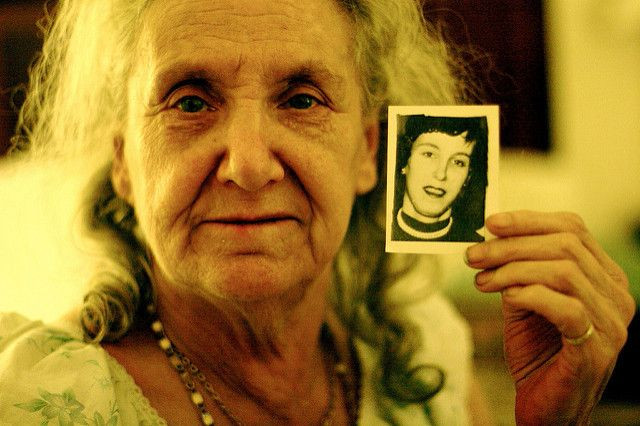Think Positive! Negative Beliefs About Getting Old Could Shorten Lifespan By 7 Years

Attitude makes a difference, yet you may not have examined your thoughts and feelings about one of the most fundamental aspects of your life — aging. A researcher at Sweden’s Umeå University supports the idea that adopting a positive attitude toward the aging process might help us live substantially longer. Yet, the very word “ageism” leads people to think only of the elderly, he suggests, and so is itself a form of discrimination.
It's time we redefine our beliefs and rename our terms to mirror the lived experience of growing old, says Dr. Fredrik Snellman, an associate professor of social work, in a new article.
It would be silly to deny we change as we grow older; for most of us, this means we become more of ourselves, less afraid to show the world exactly who we are. Yet, growing old — or even just getting older — is usually characterized as something negative, with ample proof on display in the birthday card section of your local card store.
The term “ageism” was first coined in 1968 by Dr. Robert Butler, an American psychiatrist and gerontologist (who happened to be raised by his grandparents). According to Butler, ageism encompasses three aspects: Prejudicial attitudes toward aging and the aged; discriminatory practices against the elderly; and institutional policies which reduce opportunities for older adults to live with satisfaction and dignity. All three aspects contribute to transforming a natural process into a social problem with the individual shouldering all of the blame and unpleasant consequences, Butler suggested.
In the decades since, many researchers and theorists have explored the problem, yet Snellman believes these past conceptions of ageism and the term itself have resulted in a dichotomy of “us and them.”
Not Just Your Future Self
Ageism should instead be portrayed as significant to people of all ages, says Snellman, since at times we all use age to organize our lives and also to make our social worlds understandable. In fact, this use of age (as an organizing principle) is often hidden or made to seem trivial when noticed. For example, have you ever been told you are too young to do something? Ageism cuts both ways, but in a culture obsessed with youth, older people bear most of the burden.
It is important we make everyday instances visible, while also searching for new terms to describe the aging process, argues Snellman. As proof of the need for increased awareness, he cites a 2002 study from Dr. Becca Levy. People who have more negative attitudes about growing older live, on average, 7.6 years shorter than people who feel more positively about aging, Levy and her colleagues found.
(Go ahead and ask yourself: How do I feel about growing old?)
Noting how age both enables and limits our reality all throughout our lives, Snellman encourages a “lively debate about the complex problem of ageism.” Ultimately, he suggests we view and define the concept of ageism as "a universal phenomenon that concerns people of all ages and in many different ways."
Source: Snellman F. Whose ageism? The reinvigoration and definitions of an elusive concept. Nordic Psychology. 2016.
Published by Medicaldaily.com



























